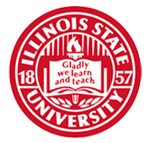Abstract
The aim of the current study was to examine student ability, student and standardized patient perceptions of competency, and student perceptions of effectiveness of simulation methodology for conducting language screenings on individuals with aphasia. Graduate students enrolled in a mandatory course on acquired language disorders (n = 36) completed a variety of simulated learning experiences using videos, high-fidelity manikins, and standardized patients, in preparing them for clinical practice with persons with aphasia. 5-point Likert scales and open-ended survey questions relating to student and standardized patients’ perceptions were administered. Results demonstrated a strong positive perception that simulation promotes student understanding of assessment procedures and aids in the development of clinical judgment. Data also illuminate that certain skills may be slower to emerge and require greater experience and supervisory feedback, for example, problem-solving difficult moments. There was an overall positive response to the use of simulation methodology to build skills in screening patients with PWA. Students’ perceptions matched that of the standardized patients, and students excelled in the final summative skill activity.
Keywords: aphasia; simulated learning; academic education; clinical education
Recommended Citation
Moineau, S., Bennett, D., & Scheer-Cohen, A. (2018). Aphasia simulation: A perspective from the student and standardized patient. Teaching and Learning in Communication Sciences & Disorders, 2(1).
Included in
Communication Sciences and Disorders Commons, Curriculum and Instruction Commons, Rehabilitation and Therapy Commons




